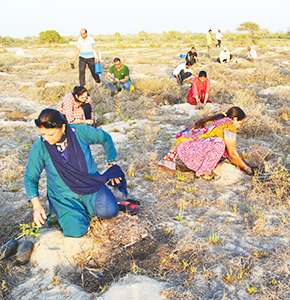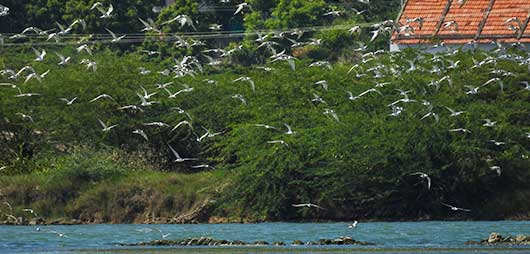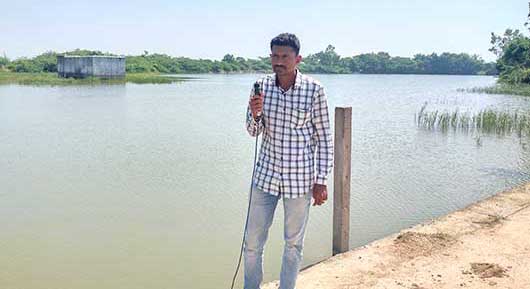Our main focus is on Natural Resource Management & Environmental Conservation. Key programmes include land and water management activities, waste management, and preservation of biodiversity and mitigation of climate change impacts. The programmes are designed with a participatory approach along with inclusion of other partners who provide skills, knowledge, expertise and funds to enhance the effort and reach a larger number of people.
| Natural Resource Management | Biodiversity Conservation |
|---|---|
| Watershed development and Water management (Jal Dhan) | Centre for Sustainable Conservation Action for the Protection of the Ecosystems of the Seas (C-SCAPES) |
| Soil and Land improvement | |
| Waste Management |


Name of Intervention: Biodiversity-CSCAPES
Name of project: Restoration of Saltpans for Conservation of Migratory Water birds
Location: Kanyakumari District, Tamil Nadu
Tamil Nadu has seen degradation of many natural coastal wetlands that are being drained or transformed for industrial and urban development. The saltpans of Kanyakumari district have been a natural habitat for
thousands of wintering and over-summering birds, including the Greater Flamingo, due to its strategic geographical location. Several saltpans here are unused for years owing to an absence of freshwater, leading
to a decline in population of several dependent bird species
C-SCAPES along with its project partner, the Bombay Natural History Society (BNHS), strengthened pumping facilities to channel freshwater into the shallower brackish water pans. This has enriched and restored 110
hectares of abandoned saltpans in Kanyakumari district, attracting diverse birdlife in great numbers and benefitting around 20,000 resident and migratory wetland dependent individuals, throughout the year.
Name of Intervention: Watershed Management- Farm Pond
Name of Beneficiary/Farmer: Vinod Kesur
Location: Ranjeetpur, Devbhoomi Dwarka district, Gujarat
The only pond in my village, Ranjeetpur, had been drying up after the monsoons leading to acute water shortage. In 2017-18, we learned about TCSRD's watershed management programme, which included the construction
of agricultural ponds, village ponds, check dams, and other structures with the support of community contributions.
I approached the TCSRD team for rebuilding the pond. With a grant from TCSRD and a contribution of Rs 18,000 by our community, our village pond was deepened and cleaned. The revived and restored pond now has
potable fresh water that is sufficient to meet the village’s needs.
The residents of Ranjeetpur could not have solved their water shortage problem without the support of TCSRD
